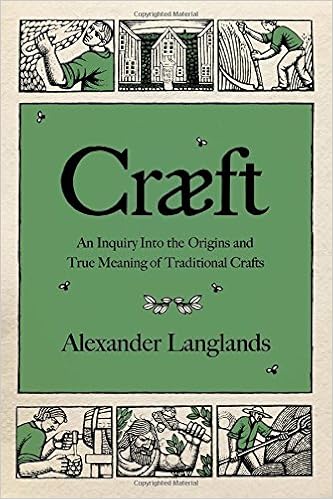 Some may find it odd that I, a guy who makes his living dealing with data, computers, bugs, and code, am such a fan of low-tech.
Some may find it odd that I, a guy who makes his living dealing with data, computers, bugs, and code, am such a fan of low-tech.
It’s not that I dislike technology—I don’t, and I have the phones, tablets, and game consoles to prove it—but while technology has made the lives of millions safer, easier, and more pleasant, it’s also taken us away from our roots, separating our connection to the physical world around us.
Alexander Langlands, an archaeologist who has worked uncovering Britain’s history for decades, thinks much the same way, and in his book, Cræft, he explores some of the most basic skills in human history, skills that require us to touch the world with our hands, and that are intimately tied to our environments and ecosystems. Through historical context and personal experimentation, Langlands shows us how tasks that, today, we might deem very simple—tasks such as digging a trench, weaving cloth, making hay, and thatching a roof—actually require broad experiential knowledge to master. He uses cræft, the Old English of the word craft, to highlight the change in the word’s meaning over the centuries. (more…)

 First, a welcome to our new subscribers. At some point we popped up over the 200 member mark, which I find pretty cool. So, thanks, all, for your interest.
First, a welcome to our new subscribers. At some point we popped up over the 200 member mark, which I find pretty cool. So, thanks, all, for your interest. Yeah, sure.
Yeah, sure. Unraveling Time
Unraveling Time Desert Wind
Desert Wind Ploughman's Son
Ploughman's Son Ploughman King
Ploughman King The Year the Cloud Fell
The Year the Cloud Fell The Spirit of Thunder
The Spirit of Thunder Shadow of the Storm
Shadow of the Storm The Cry of the Wind
The Cry of the Wind Beneath a Wounded Sky
Beneath a Wounded Sky Cryptogenesis: A Memoir
Cryptogenesis: A Memoir